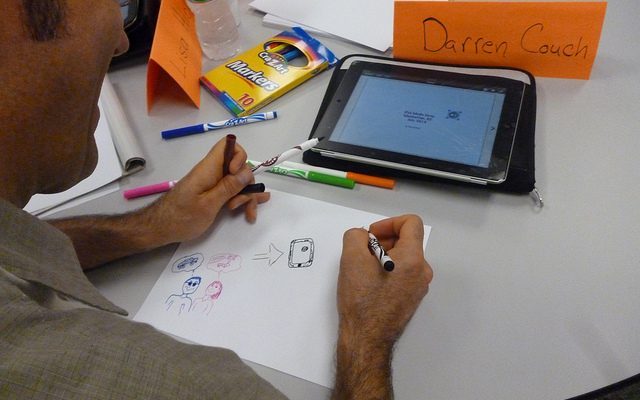Pivotal Conversations: The Homeschool Movement

Over the last two to three decades, the homeschooling movement has grown exponentially. What factors have led to this? Is it sustainable? Is homeschooling a viable means of educating your children? To gain more insight, I decided to interview John Edelson, CEO of Time for Learning, a leading homeschooling curriculum provider in the U.S.
What made you decide to create Time4Learning? Was it envisioned as a potential homeschooling curriculum from its inception?
Once I became a father, I closely observed my kids’ schooling. My kids went to classrooms that operated much like the ones that I had attended 40 years ago, and it astonished me to see that the educational system was so tradition-bound. It felt as if learning was out of touch with the students, the modern world’s educational needs, and too slow to adopt possible technological improvements.
With my two decades of background in high—tech including video games and computer graphics, I had a feel for how fast the industry could move to greatly improve whole industries. Although the tech wasn’t quite ready, I saw a chance to be the first to use the new technological capabilities for education at home.
My initial plan was to focus on interactive media, which required broadband (this was during the dial-up, modem days). When I started Time4Learning, I generally worked with parents for home education, either afterschool remediation and enrichment or homeschooling. Once I started talking to homeschoolers, I decided that was my focus. They were so engaged and so interested in meaningful education for their kids, I fell in love with homeschoolers. Fortunately, it was mutual.
Why are millions of Americans choosing homeschool over public schools and private schools?
Parents choose what they think is best for their kids. Almost everyone starts by placing their kids in school because that’s been the norm for a long time. Most of us had successful K-12 school experiences and we expected the same for our children. But that was then, and this is now. Many kids today have terrible school experiences– the traditional school system doesn’t work for all families. What’s most interesting is there is no one factor that inspires families to choose homeschooling.
Some have transitioned because the pandemic created a chaotic school environment. Between COVID surges, changing mask policies, school closures, hectic and often-disruptive virtual learning, staffing problems and teacher walkouts, parents have had enough. They want a more stable environment, one they could control and fit into their schedules.
Other parents, who now have the flexibility to work from home, want to offer their children the same freedoms. Remote work and education mean the family can function from literally anywhere – from the Grand Canyon or the beaches of Florida.
I refer to our third set of homeschoolers as “accidental homeschoolers.” These families have chosen this learning option as a last resort. These include parents of children with chronic diseases, parents with religious concerns, or those whose children have experienced bullying and school violence.
Most importantly, homeschooling is now a viable option for everyone. It’s no longer taboo or fringe. The Jones family down the street is homeschooling, doctors and lawyers are homeschooling. People are exposed to this school choice more often.
Some parents will say that homeschool does not meet children’s social needs. How would you respond to that?
I will share an old joke among homeschoolers:
Q: “What is the hardest thing about homeschooling?”
A: “Staying home.”
Once you start homeschooling, there are a variety of local co-ops, homeschool support groups or pods from which homeschoolers organize sports, clubs, science fairs, field trips, and everything else. The schedule of activities is overwhelming, and parents need to curate which activities they are doing to attend and which to skip.
Socialization among homeschoolers is different and more organic than traditional school socialization. At school, kids are organized in large groups of the exact same age, but homeschooling groups tend to reflect real life — where people of all ages meet and spend time together. Older children share knowledge with younger children, younger children experience conflict resolution among different genders and ages. It’s a win-win.
If a parent wants to join the homeschool movement, do they need to meet any minimum educational requirements?
Each state sets up their own rules for education. I encourage parents to check out our website, where we break down the rules and requirements for every state on easy-to-digest pages. But as far as I know, there is no educational requirements in any state for a parent to homeschool their children.
Are there any potential drawbacks of homeschooling?
Sure — just as there are to being in-person at a traditional school. Perfection is not readily available in education, but parents are a natural fit to teach. As parents, we’re tuned-in to our child and we know what will work and what won’t. We know when to slow down and repeat a lesson or move forward and challenge our child when they’ve mastered a skill.
The most important thing for parents to know is they can just try it out for a school year or a few years. Our platform, and many other online homeschooling curricula, is built to align with traditional school metrics and outcomes. Parents can choose to homeschool for short timeframes and return to the classroom without missing a moment.
Regardless of how families choose to homeschool, it’s always with some anxiety. They’re skeptical. They’re unsure. They feel incompetent. They don’t know how to go about homeschooling. But they decide to try it for a semester or a year. That’s how they all start.
But I have never heard a family say they regret their decision to homeschool their kids– they relish the time with their children, bonding and discovering how they learn. They forge strong memories and build a foundation for a love of learning that most children lack.
Well, that concludes my interview with John Edelson. I would like to thank him for consenting to this interview and for his contributions to the field of education and humanity in general.






